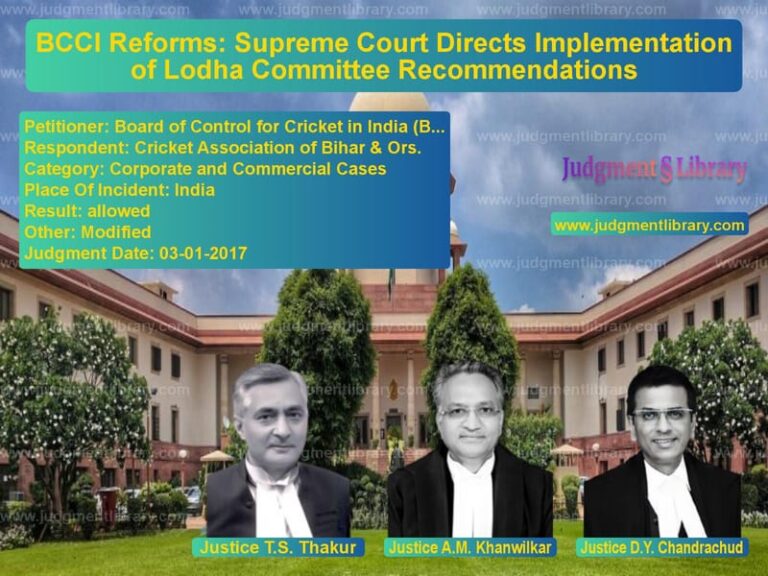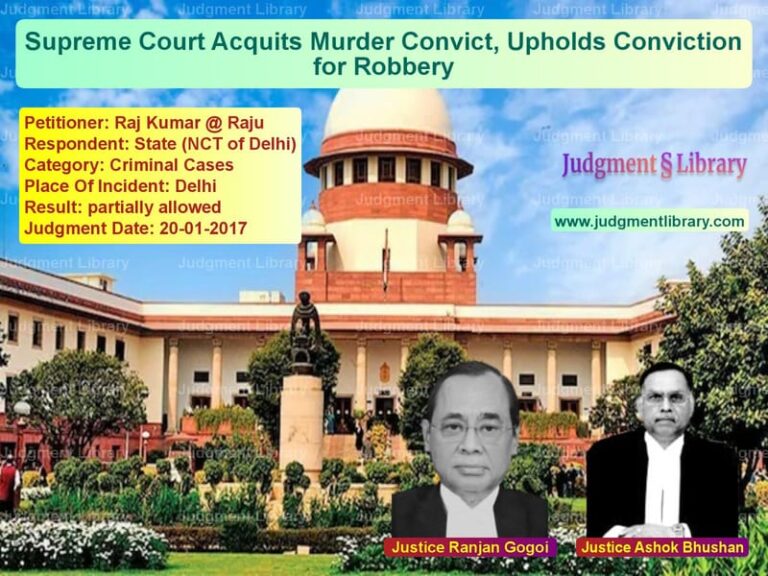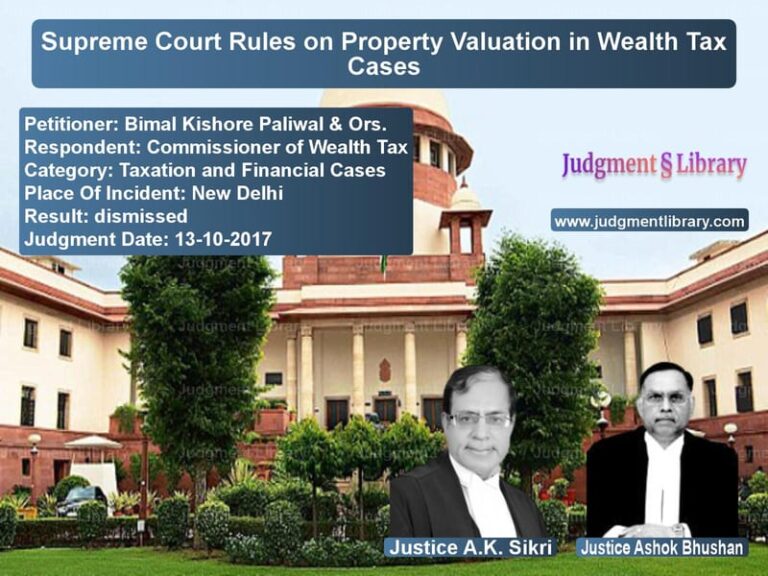Supreme Court Upholds Constitutional Validity of Lokpal and Lokayuktas Act Provisions
In a crucial decision, the Supreme Court of India in the case of Just Society vs. Union of India dismissed a petition challenging various provisions of the Lokpal and Lokayuktas Act, 2013. The Court upheld the constitutional validity of sections concerning the selection and appointment of the Lokpal and other members, thereby reinforcing the legislative intent behind the anti-corruption framework.
Background of the Case
The petitioner, Just Society, sought to challenge specific provisions of the Lokpal and Lokayuktas Act, 2013, alleging that they were unconstitutional. The primary contention was that certain sections of the Act violated Articles 14 and 50 of the Constitution. The challenged provisions included:
- Section 3(2)(a) – Composition of the Lokpal.
- Section 4(1)(d) & 4(1)(e) – Selection of Chairperson and Members.
- Section 4(2) – Selection process.
- Second proviso to Section 4(3) – Decision-making process of the selection committee.
- Section 10 – Term and conditions of office.
- Proviso to Section 14(3) – Grounds for removal.
- Section 16 – Investigation procedures.
- Section 37(2) – Power to make rules.
- Section 63 – Application of the Act to states.
The petitioner argued that these provisions failed to ensure fairness, independence, and transparency in the selection and functioning of the Lokpal.
Petitioner’s Arguments
The petitioner raised the following key objections:
- The Chief Justice of India (CJI) or his nominee was only a member of the selection committee under Section 4(1)(d) and did not have primacy in the decision-making process.
- Four former Supreme Court judges had applied for the post of Chairperson of Lokpal, and the Chief Justice should have had the final say in determining their suitability.
- The Act did not lay down clear criteria for appointing an “eminent jurist” under Section 4(1)(e), leading to arbitrary selections.
Respondent’s Arguments
The Union of India defended the Act, stating:
- The selection process was designed to ensure balanced decision-making by a committee of high-ranking constitutional functionaries.
- The absence of primacy for the CJI or his nominee was a legislative choice and did not violate any constitutional provision.
- The appointment of an eminent jurist was left to a high-power selection committee to ensure flexibility in choosing qualified individuals.
Supreme Court’s Observations
The Court thoroughly examined the petitioner’s claims and ruled:
“It is not the mandate of the Constitution that in all matters concerning the appointment to various offices, primacy must be accorded to the opinion of the Chief Justice or his nominee.”
The Court emphasized that legislative wisdom, not judicial intervention, should dictate the selection process, stating:
“If the Legislature in its wisdom had thought it proper not to accord primacy to the opinion of the Chief Justice or his nominee and treat such opinion at par with other members of the Selection Committee, such legislative wisdom cannot be questioned on the ground of constitutional infirmity.”
Regarding the appointment of an eminent jurist, the Court ruled:
“The decision being left to a high-power body consisting of high constitutional functionaries, no ex-facie illegality can be discerned in the provisions contained in Section 4(1)(e) of the Act.”
Key Takeaways from the Judgment
- Primacy of CJI Not Mandatory: The Constitution does not require that the CJI or their nominee must have the final say in every appointment.
- Legislative Choice in Appointments: The selection process for the Lokpal is a matter of legislative wisdom and does not require court intervention unless it violates fundamental rights.
- Discretion in Defining Eminent Jurist: The Court upheld the flexibility granted to the selection committee in defining and appointing an eminent jurist.
Final Verdict
The Supreme Court dismissed the petition, stating:
“We find no merit in this Transferred Case. The writ petition filed by the petitioner-Society is dismissed accordingly.”
The ruling reaffirms the constitutional validity of the Lokpal and Lokayuktas Act, 2013, and ensures that anti-corruption institutions remain free from unnecessary judicial interference.
Implications of the Judgment
This ruling has significant implications for governance and anti-corruption mechanisms:
- Ensures that Lokpal appointments remain a legislative prerogative.
- Prevents excessive judicial interference in policy decisions.
- Strengthens the authority of the high-power selection committee.
Conclusion
The Supreme Court’s judgment in Just Society vs. Union of India reinforces the constitutional framework governing anti-corruption institutions. By upholding the validity of the Lokpal selection process, the Court has ensured that the fight against corruption remains efficient and independent, without being mired in procedural challenges.
Don’t miss out on the full details! Download the complete judgment in PDF format below and gain valuable insights instantly!
Download Judgment: Just Society vs Union of India Supreme Court of India Judgment Dated 27-04-2017.pdf
Direct Downlaod Judgment: Direct downlaod this Judgment
See all petitions in Fundamental Rights
See all petitions in Public Interest Litigation
See all petitions in Legislative Powers
See all petitions in Judgment by Ranjan Gogoi
See all petitions in Judgment by Navin Sinha
See all petitions in dismissed
See all petitions in supreme court of India judgments April 2017
See all petitions in 2017 judgments
See all posts in Constitutional Cases Category
See all allowed petitions in Constitutional Cases Category
See all Dismissed petitions in Constitutional Cases Category
See all partially allowed petitions in Constitutional Cases Category







